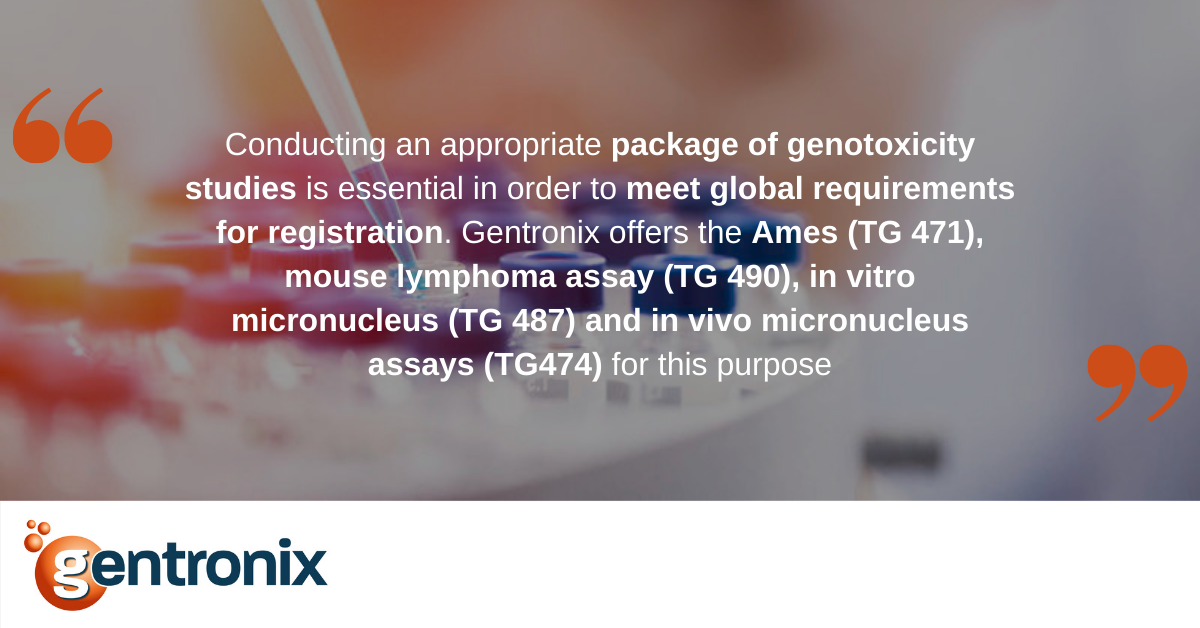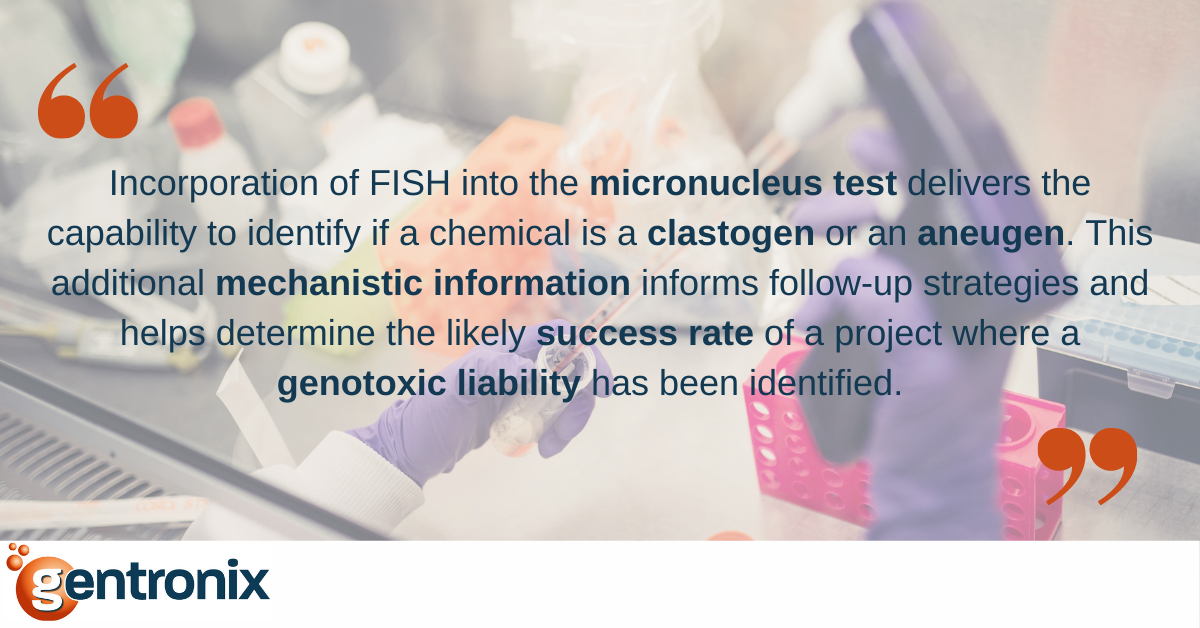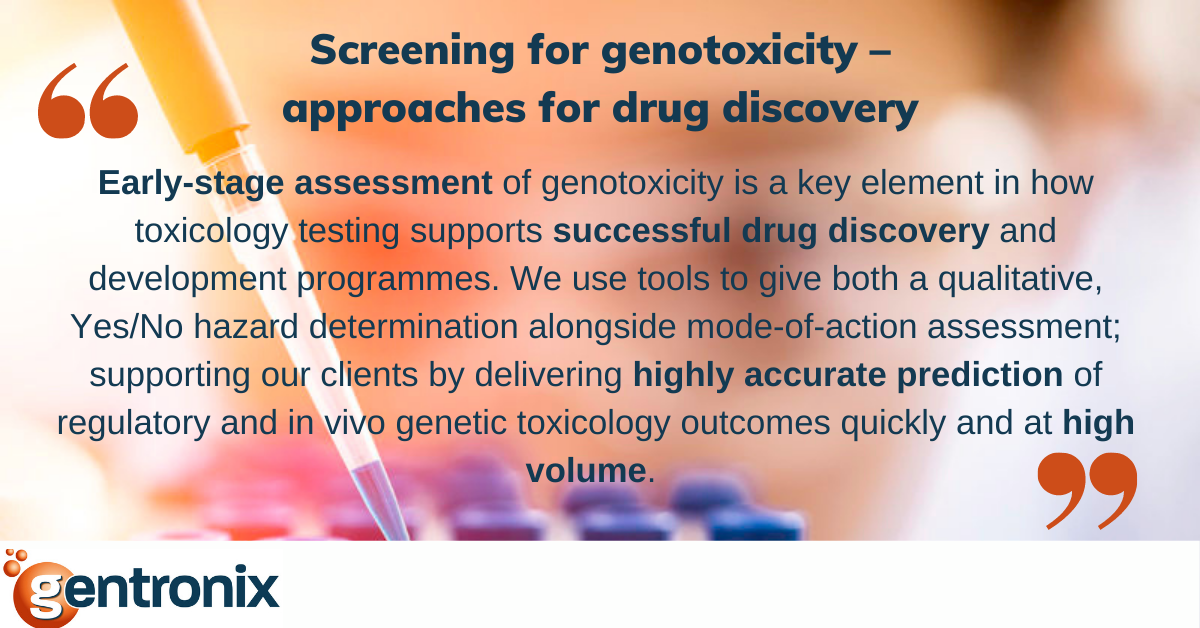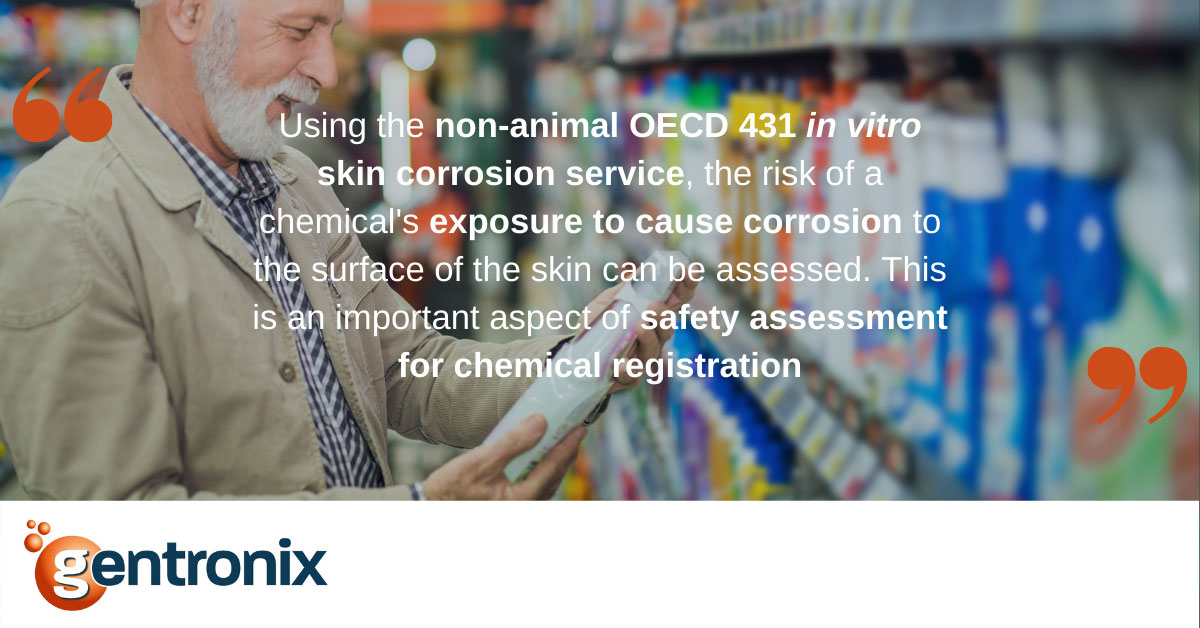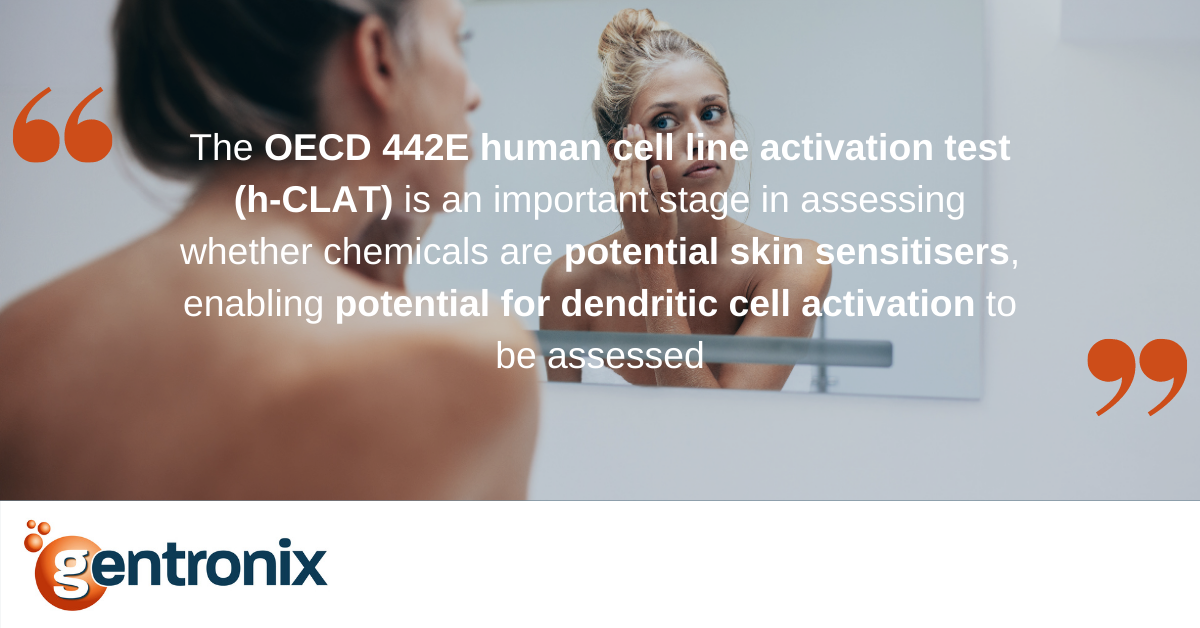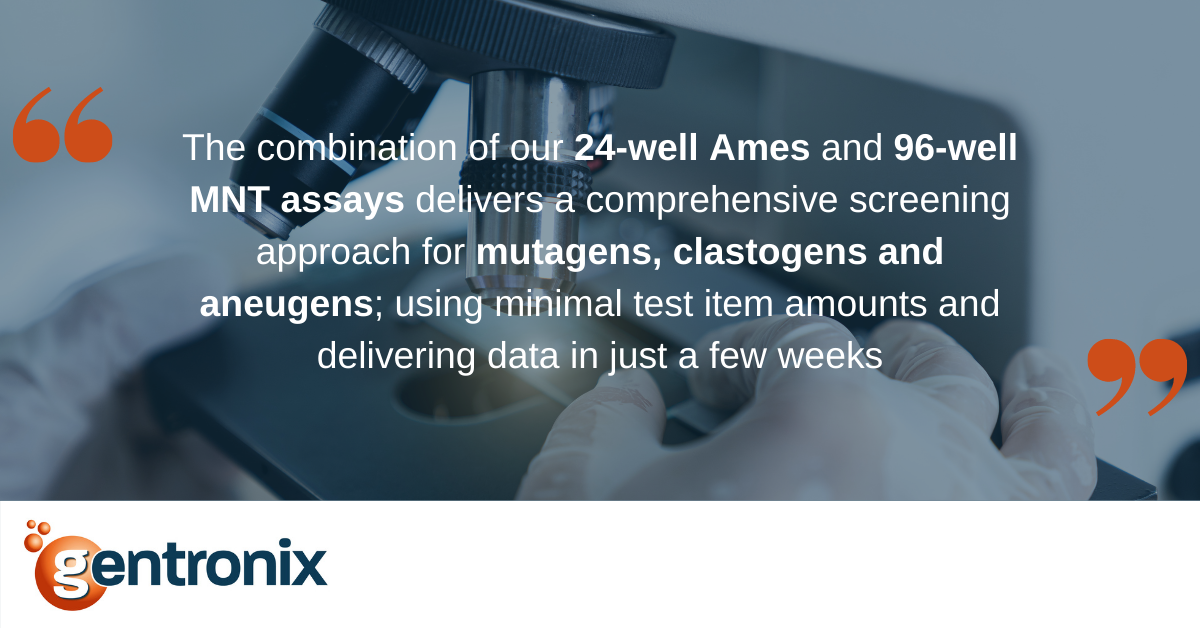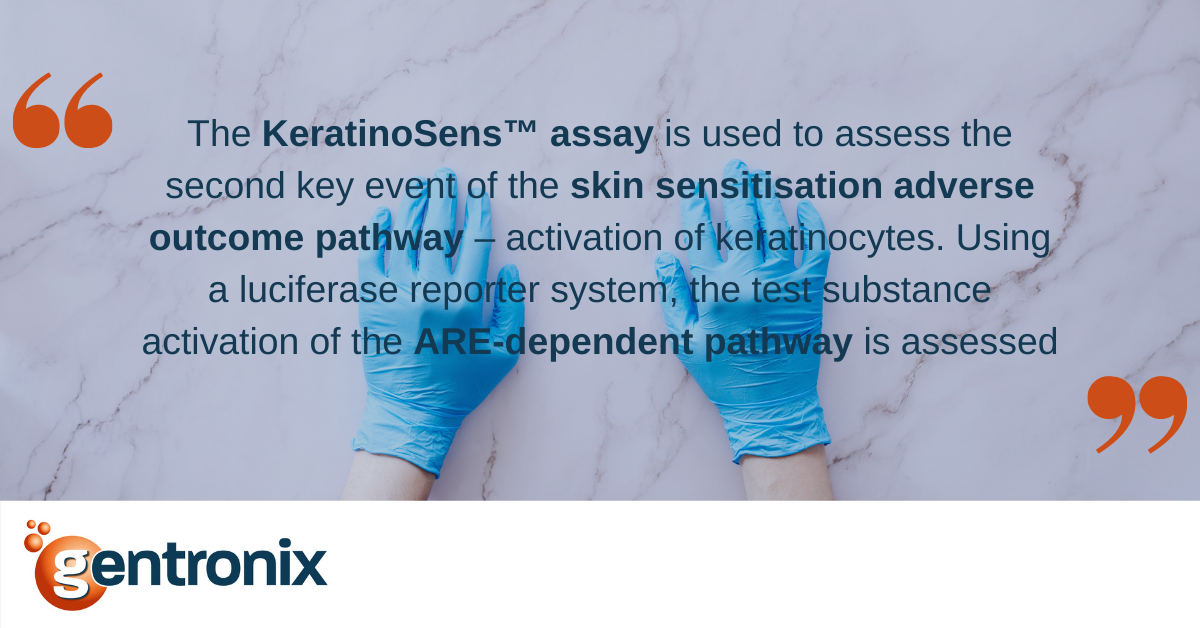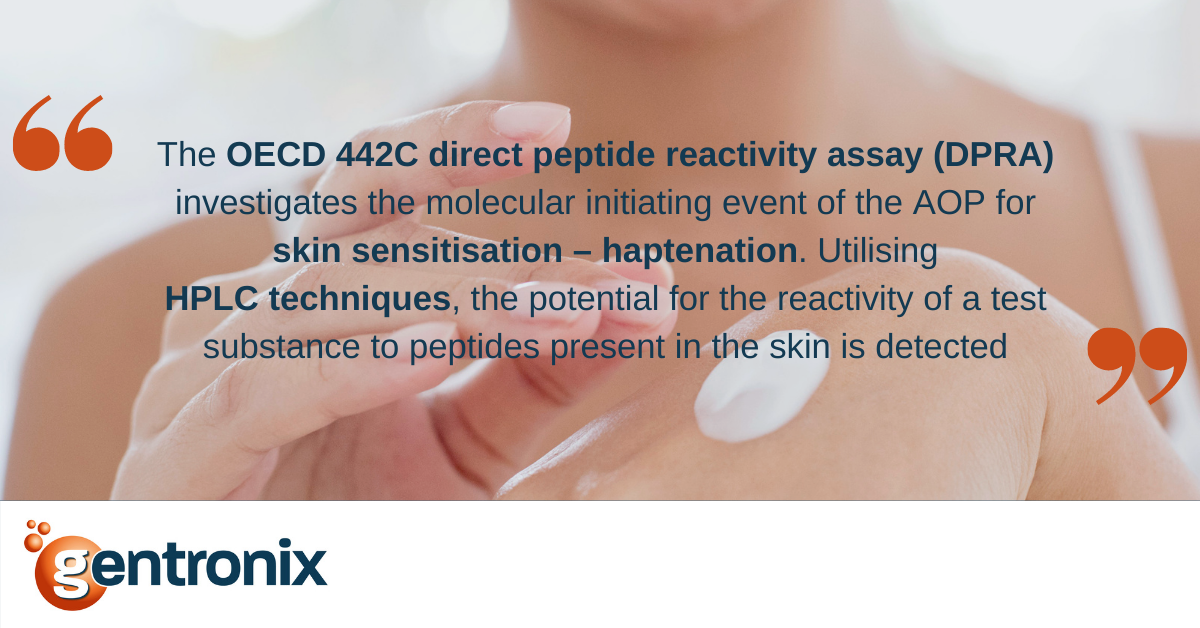Agrochemicals are extensively tested for toxicology profiles, and evaluation doesn’t stop with the active substance. Metabolites (either those that may be present in food or water supplies), impurities, manufacturing intermediates and, in some cases, formulated products often require genotoxicity testing for regulatory approval.
Testing requirements vary by region or country and depend on which type of substance is being evaluated. For instance, under EU regulations, at least one in vivo study is required for a plant protection active substance submission. This is typically an OECD 474 rodent bone marrow micronucleus assay unless the accompanying in vitro studies suggest that a study investigating point mutations would be more appropriate (i.e. a positive Ames or mammalian gene mutation assay). For non-active substances, however, Europe will typically only require in vitro data unless an in vivo is required to follow up a positive in vitro study.
Usually, an in vitro battery of the OECD 471 Ames test, 490 mouse lymphoma assay and 487 in vitro micronucleus assay would be accepted in most regions or nations for an agrochemical active substance, with one in vivo study also required as a minimum. Another requirement for Europe is the follow-up of a positive in vitro micronucleus assay with FISH staining to discriminate a clastogenic and aneugenic mode of action – a service Gentronix can provide.
Countries such as Brazil require testing plant protection formulations and request an Ames test and in vitro micronucleus assay for this purpose (although they used to require the in vivo micronucleus).
